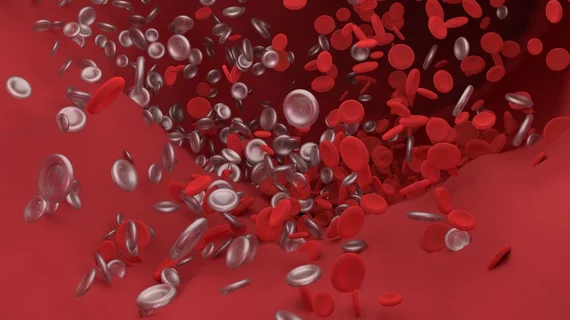Six weeks of evolocumab treatment can boost the coronary artery health of people living with HIV (PLWH) and dyslipidemia patients, according to a new study published in the Journal of the American Heart Association.
The authors tracked 19 PLWH and 11 dyslipidemia patients who were treated with evolocumab, a common PCSK9 inhibitor, at a single facility. Cardiac MRI scans were used to measure blood flow in each patient’s hand before and during a hand exercise.
Overall, the drug was associated with a steady increase in coronary artery area and “significant coronary blood flow improvement” in both patient groups. PLWH saw especially promising results, including an average increase in coronary artery area of 7.9% and an increase in blood flow of 10.1% during the hand grip exercise.
“We hypothesized that PCSK9 mediates an inflammatory response that impairs vascular function in addition to its effects on cholesterol metabolism, and we tested this idea with the protein's inhibitor to learn whether it could help people who have impaired blood vessel function,” lead author Thorsten M. Leucker, MD, PhD, assistant professor of medicine at the Johns Hopkins University School of Medicine, said in a statement. “We were surprised that this worked so well, but also heartened that there may be a way we can improve blood vessel function in those with increased inflammation.”
The authors noted that their study is limited by its small sample size. Also, some study participants were not already undergoing statin therapy, and “it is possible that if they were, the impact of PCSK9 inhibition may have been less marked.”
Even with those limitations in mind, however, Leucker et al. still observed that “PCSK9 inhibition may represent an important new treatment strategy for improving vascular function in PLWH.”

